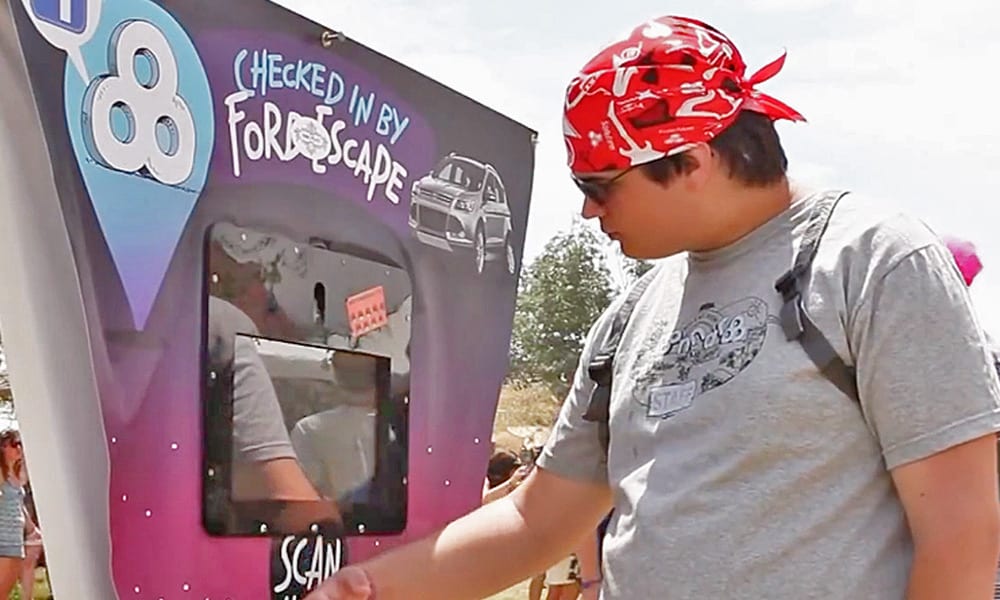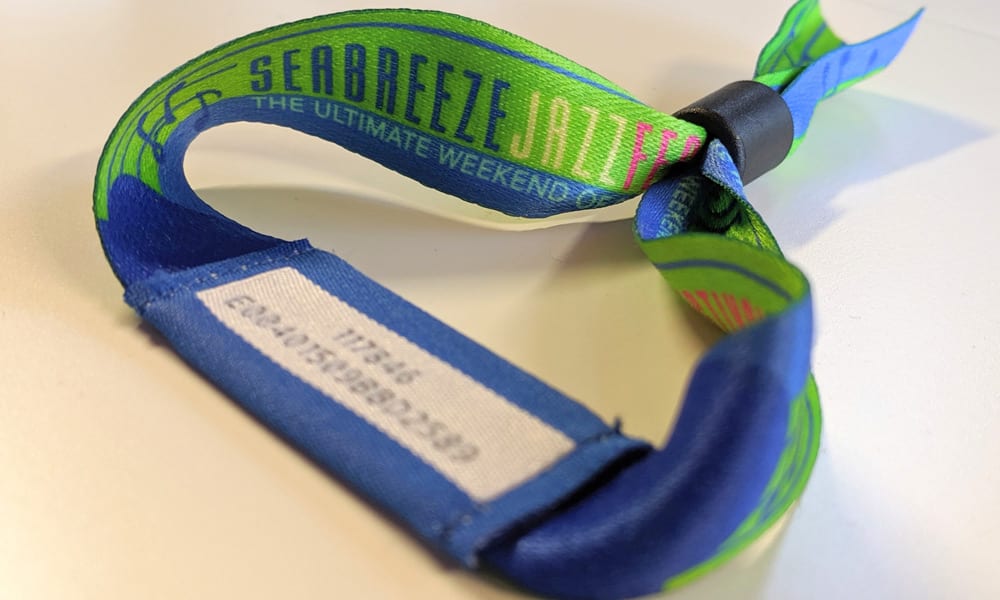If you google RFID wristbands right now, you will receive more than a million results. That’s a lot of information.
Within all that information, you will find some misleading “facts” or even conspiracies about RFID chips regarding privacy, data, security, and how the technology is used. As an event organizer, the well being of your guests is a high priority so it’s important to know the risks of any technology implemented at your event. To help you with some of your research, we’ve put together some of the most commonly overlooked facts about the use of RFID chips and wristbands at events.
You Can’t Track the Location of Someone Wearing an RFID Wristband
The RFID tags that Intellitix uses at events are passive and have a read range of approximately two inches (four centimeters). In other words, the whereabouts of a guest is only known when used with a reader. Unless the wristband wearer actively places their band close to a reader, such as at a festival entrance to validate their entry ‘ticket’ or making a cashless payment at a vendor, their location is unknown. The technology behind RFID chips simply isn’t capable of tracking someone’s location so you can ease any guests that may be concerned with location privacy.

Data Sharing is Optional
RFID wristbands do not share data about a guest or attendee with a third party without their express permission or knowledge. Should a patron choose to share their data with a brand or sponsor via a brand activation, it would entirely up to them. The heart of the event experience remains unaffected by RFID unless a patron wants to take advantage of some of the many benefits that it offers. The experience is nonetheless optional. To anyone concerned about data privacy, think how some of our daily activities such as using a mobile phone, buying anything online (including a ticket), engaging on social media, and owning a credit card involve sharing far more personal data than wearing an RFID wristband at an event.
RFID Chips Can’t be Easily Cloned and Used
Unlike the RFID chips found in loyalty-based cards or transportation cards, the Intellitix RFID chips used in wristbands are secure and cannot be cloned or hacked. Even though no personal information is held on an RFID chip, Intellitix uses many security measures to ensure that they cannot be abused. All communications and data in our system are encrypted with a minimum of 256-bit, and our encryption is changed between every event, adding another layer of security. That is bank-level security meaning you can rest assure your wristbands are safe from any bad guys.

No Personal Information is Held on the RFID Wristband
If you haven’t noticed yet, Intellitix takes security seriously. Each RFID wristband contains a unique identification number that is effectively a ‘key’ to unlock a specific user profile, which is held securely on a heavily secured event database. This data can be as limited as a transaction reference number that validates entry, or if the patron has chosen to volunteer more information, it can also contain more such as social media profile information or funds for purchasing goods on-site. You probably have more chance of receiving a billion dollars from a rich Nigerian widow via email than having your identity stolen at an RFID-enabled festival.
Want to learn more about RFID technology? We’ve put together all the information you need in our 4-Step RFID Event Check Guide that will help you find out if RFID is right for your event. Download the free guide here


